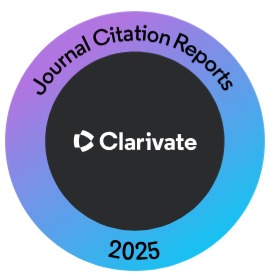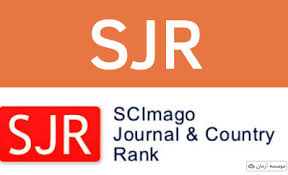Prevalence of Stigma among Medical Care Providers towards Patients with Schizophrenia and Obsessive Compulsive Disorders
Keywords:
Crosssectional, stigma, schizophrenia, obsessive compulsive disorder (OCD), Medical care providers, Medical cityAbstract
OBJECTIVE: This study aimed to identify the stigma among medical care providers towards people with
Schizophrenia and Obsessive-Compulsive Disorder and the factors associated with increased stigma among them.
METHODOLOGY: A cross-sectional study design was used to determine the prevalence of stigma among medical professionals toward patients with Schizophrenia and obsessive-compulsive disorders (OCD). Participants were from one of the best hospitals in Makkah, Saudi Arabia, King Abdullah Medical City (KAMC), in which 283 of their medical care providers were randomly selected using the RAOSOFT calculator technique. All medical care providers at King Abdullah Medical City were included. Medical care providers who refused to participate were excluded. Data entered, cleaned, and analyzed using the Statistical Package for Social Sciences (SPSS) Version 22.
RESULTS: The study clarified that medical care providers have less stigmatization towards patients suffering from OCD (53%) than their stigma towards patients with Schizophrenia (54.4%). The study found that (26.4%), and (1.4%) of physicians felt comfortable dealing with OCD and schizophrenic patients, respectively, while (28.2%) and (11.2%) of nurses felt comfortable dealing with OCD and schizophrenic patients, respectively.
CONCLUSION: The study concluded that the stigma towards patients with Schizophrenia is higher than it is towards patients with OCD; this stigma is higher among physicians than nursing staff.
KEYWORDS: Cross-sectional, Stigma, Schizophrenia, Obsessive-compulsive disorder (OCD), Medical care providers, Medical City.
References
Organization WH. Mental Health and Substance Use: World Health Organization; 2023. Available from: https://www.who.int/teams/mental-healthand-substance-use/overview.
Institute of Health Metrics and Evaluation. Global Health Data Exchange (GHDx) 2019. Available from: https://vizhub.healthdata.org/gbd-results/.
Wogen J, Restrepo MT. Human rights, stigma, and substance use. Health and Hum Rights. 2020; 22(1): 51.
Valery K-M, Prouteau A. Schizophrenia stigma in mental health professionals and associated factors: A systematic review. Psychiatry Res. 2020; 290: 113068. doi: 10.1016/j.psychres.2020. 113068. Epub 2020 May 24.
Organization WH. Schizophrenia: World Health Organization. 2022. Available from: https://www.who.int/ news-room/fact-sheets/detail/schizophrenia.
Fawcett EJ, Power H, Fawcett JM. Women are at greater risk of OCD than men: a meta-analytic review of OCD prevalence worldwide. J Clin Psychiatry. 2020; 81(4): 19r13075. doi: 10.4088/JCP. 19r13085.
Cheng Y-F, Chen VC-H, Yang Y-H, Chen K-J, Lee Y-C, Lu M-L. Risk of Schizophrenia among people with obsessive-compulsive disorder: A nationwide population-based cohort study. Schizophr Res. 2019; 209: 58-63. doi: 10.1016/j.
schres.2019.05.024. Epub 2019 May 24.
Durna G, Yorulmaz O, Aktaç A. Public stigma of obsessive-compulsive disorder and schizophrenic disorder: Is there really any difference? Psychiatry Res. 2019;271: 559-64. doi: 10.1016/j.psychres.2018. 12.065. Epub 2018 Dec 10.
Batarseh Y, Abukhalaf M, Fakhoury R, Alfalah L, Wazaify M. Mental health literacy and stigma towards patients with mental health disorders among pharmacists in the MENA region. J Pharmaceut Health Services Res. 2022; 13(2): 242
Riffel T, Chen S-P. Stigma in healthcare? Exploring the knowledge, attitudes, and behavioural responses of healthcare professionals and students toward individuals with mental illnesses. Psychiatr Q. 2020; 91(4): 1103-1119.
doi: 10.1007/s11126-020-09809-3.
Knaak S, Mantler E, Szeto A, editors. Mental illness-related stigma in healthcare: Barriers to access and care and evidence-based solutions. Healthcare Management Forum; 2017: SAGE Publications Sage CA: Los Angeles, CA.
Alghadeer SM, Alhossan AM, Al-Arifi MN, Alrabiah ZS, Ali SW, Babelghaith SD et al. Prevalence of mental disorders among patients attending primary health care centers in the capital of Saudi Arabia. Neurosciences (Riyadh).
; 23(3): 238-243. doi: 10.17712/nsj.2018.3. 20180058.
Saad SY, Almatrafi AS, Ali RK, Mansouri YM, Andijani OM. Stigmatizing attitudes of tertiary hospital physicians towards people with mental disorders in Saudi Arabia. Saudi Med J. 2019; 40 (9): 936-942. doi: 10.15537/smj. 2019.9.24510.
Napier AD, Ancarno C, Butler B, Calabrese J, Chater A, Chatterjee H et al. Culture and health. Lancet. 2014; 384(9954):1607-39. doi: 10.1016/S0140-6736(14)61603-2. Epub 2014 Oct 29.
Al-Atram AA. Physicians' knowledge and attitude towards mental health in Saudi Arabia. Ethiop J Health Sci. 2018; 28(6): 771-778.
Corrigan PW, Watson AC. Understanding the impact of stigma on people with mental illness. World Psychiatry. 2002; 1(1): 16-20.
Shrivastava A, Johnston M, Bureau Y. Stigma of mental illness-1: Clinical reflections. Mens Sana Monogr. 2012; 10(1): 70-84. doi: 10.4103/09731229.90181.
Ebrahimi H, Namdar H, Vahidi M. Mental illness stigma among nurses in psychiatric wards of teaching hospitals in the north-west of Iran. Iran J Nurs Midwifery Res. 2012; 17(7): 534-538.
Rössler W. The stigma of mental disorders: A millennia?long history of social exclusion and prejudices. EMBO Rep. 2016; 17(9): 1250-3. doi: 10.15252/embr.201643041. Epub 2016 Jul 28.
Downloads
Published
How to Cite
Issue
Section
License
Copyright (c) 2023 Journal of Liaquat University of Medical & Health Sciences

This work is licensed under a Creative Commons Attribution-NonCommercial-ShareAlike 4.0 International License.
Submission of a manuscript to the journal implies that all authors have read and agreed to the content of the undertaking form or the Terms and Conditions.
When an article is accepted for publication, the author(s) retain the copyright and are required to grant the publisher the right of first publication and other non-exclusive publishing rights to JLUMHS.
Articles published in the Journal of Liaquat University of Medical & health sciences are open access articles under a Creative Commons Attribution-Noncommercial - Share Alike 4.0 License. This license permits use, distribution and reproduction in any medium; provided the original work is properly cited and initial publication in this journal. This is in accordance with the BOAI definition of open access. In addition to that users are allowed to remix, tweak and build upon the work non-commercially as long as appropriate credit is given and the new creations are licensed under the identical terms. Or, in certain cases it can be stated that all articles and content there in are published under creative commons license unless stated otherwise.























